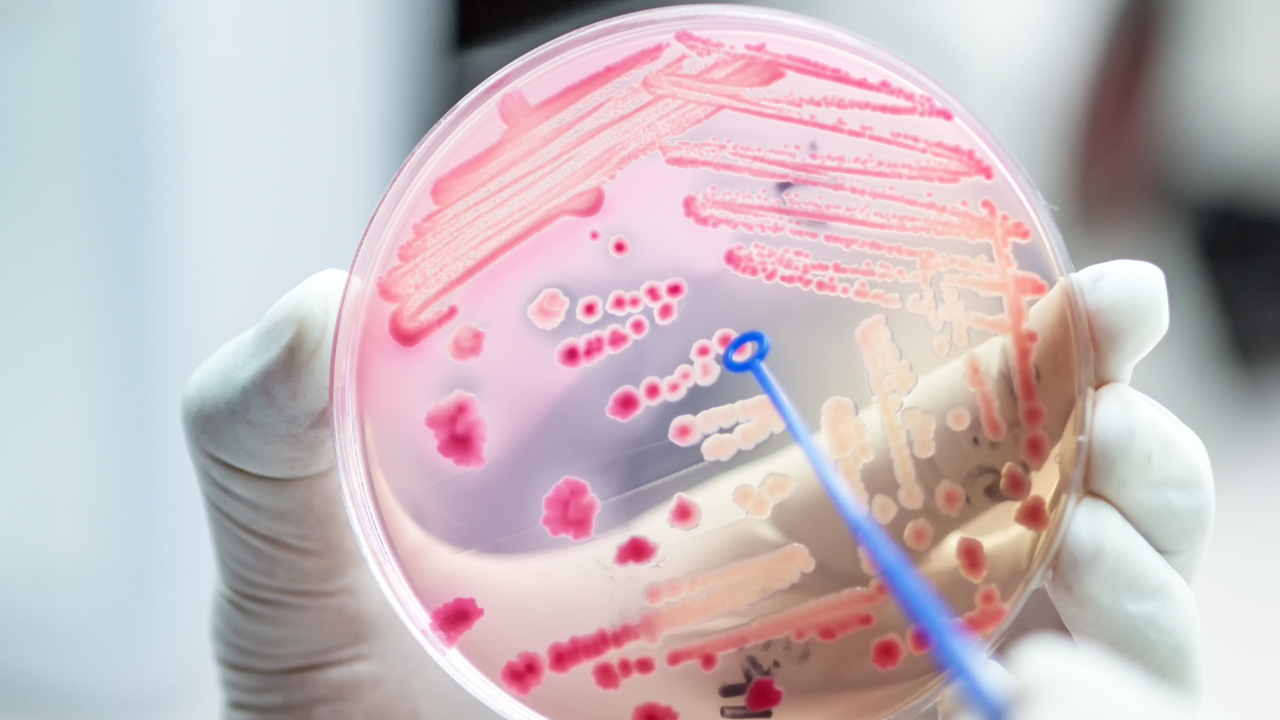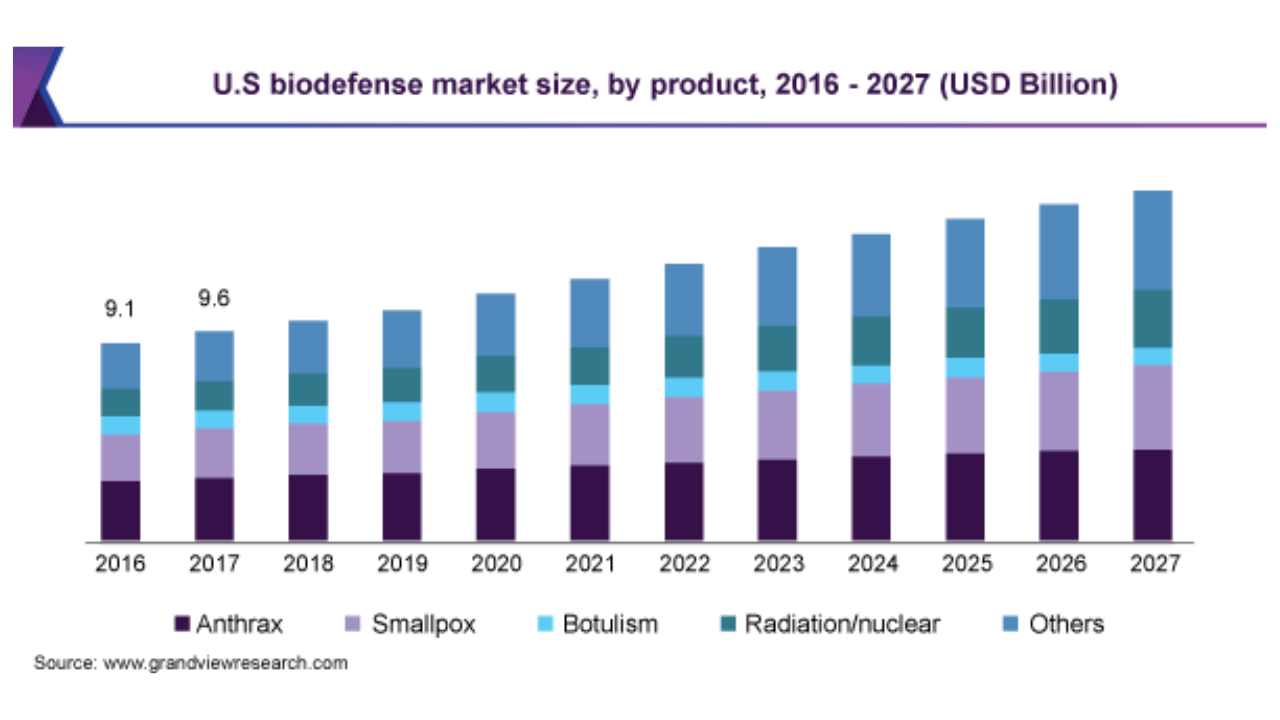Jul 26, 2022
Appili is on the cutting edge of the biopharma space in preparing for new infectious disease threats

- The COVID-19 pandemic has increased awareness of the threat posed by infectious diseases and the importance of pandemic preparedness
- Halifax headquartered Appili Therapeutics works with government and industry partners to identify and develop a diverse portfolio of infectious disease medicines including new therapeutics and vaccines to protect against emerging public health threats
- The company’s approach of aligning its portfolio with government and public health priorities has helped it secure significant non-dilutive funding including a recent commitment of over US$10 million from the US Department of Defense to develop its ATI-1701 biodefense program
As the COVID-19 tsunami recedes, it's revealing a landscape littered with other reefs and shoals of infectious diseases and putting a spotlight on pandemic preparedness for the next big wave. Governments and industry are funding up to get ready for COVID-19's successor as Public Health Enemy Number One.
In the United States, President Joe Biden's administration’s Fiscal Year 2023 budget includes a historic $88.2 billion request for mandatory funding to prepare for future biological threats in support of objectives within U.S. national and global biodefense and pandemic preparedness strategies and plans.
But it's not just the next big bug we have to worry about. Existing germs and viruses are becoming increasingly resistant to existing drugs. A study published in The Lancet in February estimated that antimicrobial resistance was associated for 4.95 million deaths in 2019, making it one of the world's leading causes of death.
Climate change is also compounding the problem of infectious disease, fuelling the spread of tropical diseases, expanding their range, and posing threats in countries where they were previously unknown.
“Since Appili was founded, we have always been focused on the emerging public health threats of our time, whether it’s neglected tropical diseases, antibiotic resistance or the next big pandemic.” – Dr. Armand Balboni, CEO, Appili Therapeutics Inc.
Climate change may even lead to entirely new infectious diseases, and has been proposed to play an important role in the rise of Candida auris, a new species of fungus that causes serious infections and is already highly multi-drug resistant. This new species is increasingly being reported globally and is now well established in the US and many countries around the world. The potential of additional infectious diseases emerging is still being assessed.

The bottom line is that infectious diseases won't stop coming, either via resistance, geographic spread, or new species. The global community needs constant innovation in the biopharma space to combat these threats.
Appili Therapeutics: Fighting infectious diseases on a global scale
With so many real and potential threats crowding the infectious disease horizon, enormous investments are being made to combat them. Halifax headquartered Appili Therapeutics Inc. (TSX: APLI |OTCQX: APLIF) is well-positioned to benefit from the increasing pandemic awareness and funding for preparedness in the post-COVID-19 "new normal". A nimble biopharma company, Appili works with government and industry partners to identify and develop medicines to protect against emerging public health threats.
“At Appili, we recognize that infectious diseases are a dynamic and rapidly evolving threat to public health,” says Dr. Armand Balboni, Chief Executive Officer of Appili. “Our adept organizational structure and extensive partner network are ideally suited to the shifting infectious disease landscape.”
Appili's unmet needs focus is the fuel propelling the delivery of near- and long-term value
Appili works closely with government partners focused on unmet needs in public health and biodefense to advance its infectious disease pipeline. This approach has helped Appili secure significant non-dilutive funding support, including a recent commitment of over US$10 million with the US Department of Defense (DOD) to develop its ATI-1701 program. Under the proposed funding deal, Appili will expand the scope of its work in developing a vaccine for Francisella tularensis, the causative agent of tularemia and a top bioterrorism threat.
A potentially potent bioweapon, Francisella tularensis is 1,000 times more infectious than anthrax and easily dispersed. There is currently no FDA-approved vaccine available, and the US government has made developing a Medical Counter Measure (MCM) for military and civilians a top priority.
To meet this need, Appili's ATI-1701 program is developing a novel, live-attenuated tularemia vaccine candidate that has performed well against other experimental vaccines like LVS. A recent nonclinical study conferred a 100 per cent survival rate.
The program's potential payoff is enormous. Tularemia is thought to have been weaponized decades ago and Iran, Russia and North Korea may have substantial stockpiles, putting soldiers and civilians in states like South Korea and Israel at risk. Stockpiling a tularemia vaccine could lead to large orders from these countries, the United States and others. Companies like Emergent Biosolutions have made billions of dollars providing stockpiles of anthrax vaccine alone.
New ATI-1801 program promises relief from disfiguring cutaneous leishmaniasis
In addition to providing important funding and research support for its existing programs, Appili’s government relationships have also helped it source and add new programs to its portfolio.
ATI-1801, licensed from the US DOD, is one such program. This program is a novel topical product with demonstrated safety and efficacy in Phase 3 study. It is a clinical stage topical paromomycin product to treat cutaneous leishmaniasis, a disfiguring infection of the skin that affects hundreds of thousands of people around the world annually and is characterized by the formation of lesions and ulcers that often lead to scarring, disfigurement, disability, and stigmatization of the infected.
Appili intends to work with international partners to complete the remaining development activities to enable registration with global regulatory authorities, including the US FDA, and ultimately make the product available worldwide.
Appili's ATI-2307 program fights drug-resistant fungal infections
Appili is also helping fill the gap in treating fungal infections. It's a critical area given that existing strains are increasingly drug-resistant and new variants are arising. The company's ATI-2307 program is developing a novel clinical-stage antifungal that, if successful, will give physicians a new treatment option to overcome difficult to treat and resistant fungal infections like Cryptococcus and Candida auris.
Supported in part by the National Institutes of Allergy and Infectious Disease (NIAID), the ATI-2307 program is performing well. In three Phase 1 studies, it was well tolerated up to the highest dose tested. Appili is also working closely with leading antifungal clinical trial experts at the Mycoses Study Group to advance clinical development.
The market for a new anti-fungal treatment is huge. The recently approved treatment Cresemba has garnered Swiss-based Basilea Pharmaceutica a US$600 million licensing agreement with Pfizer. That's in addition to the US license worth over US$400 million. Crossing international waters into Europe and Asia, Shionogi & Co., Ltd. and F2G Ltd., entered into a strategic collaboration to develop and commercialize Phase 2 antifungal agent, olorofim, for European and Asian markets. F2G received a US$100 million upfront payment under the agreement and is eligible for an additional US$380 million in milestones and double-digit royalties on sales.

“Driven by warming temperatures, difficult-to-treat invasive fungal infections are spreading and expanding to new regions around the world and are quickly emerging as a severe public health threat. We hope to address this significant issue through the development of our novel clinical stage antifungal candidate that has shown strong potential against multiple high priority and clinically important fungi,” says Balboni.
Appili's ATI-1503 program takes on antibiotic resistance
Appili is also on the cutting edge of one of the biggest health threats facing the globe – antibiotic-resistant pathogens. Without the proper treatments, it's estimated that death rates from antimicrobial resistance superbugs will outpace cancer by 2050.
Appili's ATI-1503 program is addressing this need by developing a novel class of antibiotics that target multi-drug-resistant Gram-negative bacteria. The goal is to help in the battle against top threats identified by the World Health Organization and other agencies like Klebsiella pneumoniae and Acinetobacter baumannii.
The ATI-1503 program is building on earlier research by AstraZeneca. The company's scientists have found ways to make the antibiotic more potent and effective. Recent results show a ten-fold increase in efficacy over the original negamycin compound.
The program has had strong funding and partnership support. It has received two Peer Reviewed Medical Research Program awards worth US$4.2 million and an additional $759,000 from the National Research Council of Canada. Preclinical testing funding was provided by NIAID and the US Army Medical Research Institute of Infectious Diseases.
Strategic partnerships are a key to Appili's success
Critical to the company's growth is Appili's partnership model, which increases its reach and capabilities. Building relationships with key players in government, industry, and academia have helped the company thrive.
An example of that model in action is Appili's ATI-1501 program, which is being developed in partnership with Saptalis, a New-York based specialty pharmaceutical company. The program has developed a taste-masked liquid form of metronidazole, which is used to treat parasitic and anaerobic bacterial infections. Its original pill format is not only difficult for seniors and children to swallow, but its taste is so bitter it's listed on the drug label as an adverse effect.

Making an easy-to-swallow, better-tasting version of metronidazole will benefit young and old patients alike. The ATI-1501 program has developed just that and has demonstrated strong and clear palatability improvements.
Saptalis licensed U.S. rights to ATI-1501 in 2019 and have advanced the program to a point where they expect to file a New Drug Application with the U.S. Food and Drug Administration later this year. In February, Appili and Saptalis finalized an amendment under which Saptalis assumes responsibility for the development and commercialization of ATI-1501 in Europe and Latin America. Appili will receive royalties in return as well as milestone payments and royalties from U.S. sales as outlined in the original agreement.
Appili Therapeutic’s investment is designed for success in the post-pandemic era
It always helps to have friends in high places and Appili has built relationships with some of the biggest and best-financed government agencies in North America. DTRA has committed to provide financial backing for the ATI-1701 program. The ATI-1503 program has support from the U.S. Department of Defence. NIAID's recent support of the ATI-2307 program completes a trifecta of major U.S. agencies partnering with Appili. Their combined annual budgets exceed US$780 billion.

“There is little doubt that without government support, promising drug programs can fail. That’s why Appili is grateful to have developed many deep relationships with senior government agencies in the U.S. and Canada that help set us up for success throughout the development and regulatory approval stages,” says Balboni.
Appili also casts a broader partnership net by building relationships with pharmaceutical companies like Saptalis to support commercialization.
Another strength is Appili's in-licensing strategy that identifies overlooked assets. Being platform or technology agnostic allows the company to seek a broad range of opportunities while focusing on generating value for shareholders and improving outcomes for patients. Appili’s current pipeline includes programs secured from government and industry partners alike, with ATI-1701 licensed from the National Research Council of Canada, ATI-1801 licensed from the US DOD, and ATI-2307 acquired from FUJIFILM Toyama Chemical. Coupled with constant analysis to identify urgent, unmet needs, Appili is built to find and advance infectious disease programs.
“Since Appili was founded, we have always been focused on the emerging public health threats of our time, whether it’s neglected tropical diseases, antibiotic resistance or the next big pandemic. That’s why we have built a diversified pipeline with an eye to near-and long-term value and believe as a result of this strategy we’re well positioned for long-term success in our industry,” says Balboni.
To learn more about Appili Therapeutics, visit their website here.
Make sure to follow Appili Therapeutics for the most up-to-date information:
Disclaimer
This article contains forward looking information which is based on various assumptions and subject to inherent risks, including those identified in Appili’s public disclosure available under its SEDAR profile at www.sedar.com.